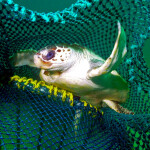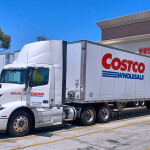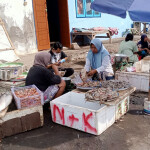Gabriel Luna is the founder and CEO of Gluna Shrimp and the co-founder of the Global Shrimp Council.
The global shrimp industry is a vast network of businesses and people that extends far beyond the simple production and sale of shrimp. It encompasses a wide array of individuals whose livelihoods are directly or indirectly tied to this thriving industry, all of whom are dedicated and committed to their roles within the shrimp value chain. To fully appreciate the real value of this chain, we must recognize the contributions of both the direct participants – those involved in aquaculture farming, processing, and distribution – and the many indirect workers who support these activities without necessarily being involved in farming, processing, exporting, or distribution.
At the heart of our shrimp industry are the aquaculture farmers, who cultivate shrimp in various settings, ranging from small-scale, half-hectare ponds to large-scale, 100-plus-hectare farms. The small farms provide income for families, and from there, it scales up to farms that provide jobs and income to thousands of people involved in shrimp farming.
These farmers and workers are responsible for the day-to-day care of shrimp, including feeding, monitoring water quality, and ensuring the health of shrimp stocks. Their knowledge, expertise, and labor are intense, often underestimated, yet crucial to the success of the entire chain.
Farmers' expertise is complemented by advancements in genetics, which have played a crucial role in recent years. As production has increased, aquaculture farmers have been forced to become more efficient, a natural evolution following the challenges brought by early mortality syndrome that caused significant shortages. The industry benefits from great minds working on genetics and the science behind these advancements.
Today’s farming process heavily depends on high-quality feed, produced in specialized factories, which in turn generate thousands of jobs. Workers in these factories develop and manufacture feeds that optimize shrimp growth, health, and yield. This stage of the chain involves nutritionists, engineers, and factory workers who ensure that the feed meets the specific needs of shrimp at different stages of their life cycle.
Once harvested, shrimp are sent to processing plants where they undergo cleaning, sorting, freezing, and packaging. Workers in these plants play a critical role in adding value to the raw product, transforming it into various forms that meet market demands. These jobs require precision, determination, and efficiency to maintain the quality and safety of the shrimp.
A global shrimp market means that importers and distributors are key players in the value chain. These professionals manage the logistics of getting shrimp from farms and processing plants to markets around the world. Their work involves understanding market price conditions, adhering to regulations, ensuring that shrimp products meet their countries' standards, coordinating transportation, and, crucially, maintaining the cold chain.
While these are some of the direct participants, the industry would not have grown as it has without the extensive range of indirect workers who are not directly involved in shrimp farming or processing but whose services are essential to the smooth functioning of the comprehensive value chain.
Moving shrimp from farms to processing plants to ports, shipping it across the ocean, receiving it, and transporting it to a warehouse requires truck drivers, transportation workers, shipping lines, mechanics, and machine operators who ensure that these processes run smoothly. Cold storage and refrigeration technicians are all critical components of ensuring that the efforts of the aquaculture farmers reach their final destination in the best condition.
Quality control and compliance officers, certification companies, and verifiers ensure that all stages adhere to the necessary standards. Input suppliers are also crucial; shrimp farming relies heavily on feed, which, in turn, depends on ingredients, fertilizers, chemicals, and farming equipment. Manufacturers of nets, aerators, water-testing kits, and water pumps are integral to the farming process, ensuring that farmers have the tools they need to produce high-quality shrimp.
As the industry has matured, so has the need for R&D specialists who work in laboratories and research institutions developing new disease prevention techniques and sustainable farming practices to help the industry evolve and meet changing market demands.
A large-scale industry like today’s shrimp sector wouldn't be possible without the support of insurance companies, banks, and investors. Loans provide the necessary capital and coverage that farmers and exporters require to expand their operations and mitigate risks. This joint effort supplies the world with the best quality shrimp possible.
So, what is the real value of the shrimp chain? It’s not just the tens of billions of dollars that the global industry generates or the jobs it creates, but most importantly, it's the millions of people who have dedicated their lives to this growing industry. Their enthusiasm and dedication have driven us to work continuously to improve the industry for everyone's benefit.
News headlines often focus on the problematic issues within the industry, but we should also consider the many success stories that don’t make headlines because they aren't deemed newsworthy. Think of the old and young entrepreneurs who have made a living from the industry’s growth and the development opportunities it has created. How many families have they employed? How much food, shelter, and healthcare have they been able to provide to the millions of people positively impacted by this amazing, growing shrimp industry?







